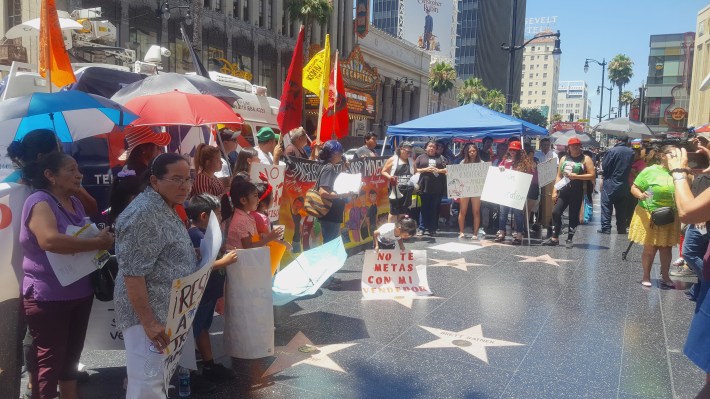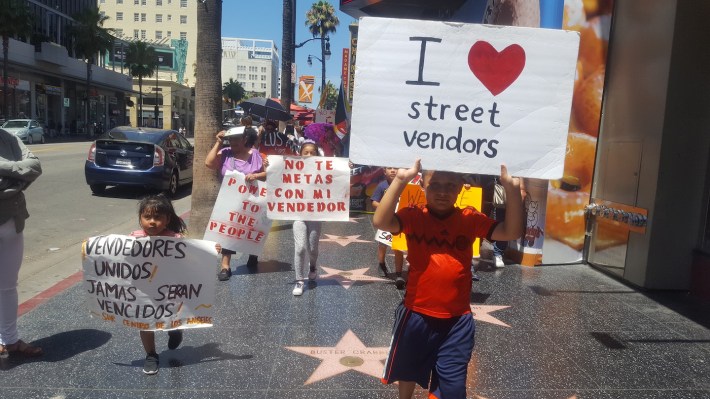[dropcap size=big]F[/dropcap]or Angelenos used to picking up a tamale for lunch on their way to work, or hitting up the Ave 26 taco stand after a Dodgers game, it may come as a surprise that street vending hasn't always been legal in Los Angeles.
It was only decriminalized in February of this year, after at least a decade of activism from organizing networks and street vendors themselves. And the sidewalk entrepreneurs are still waiting for Los Angeles to institute a permitting system that would give them more access to the formal economy.
Now, their efforts to fully legalize the practice might be getting a boost from Sacramento. On Monday, Governor Brown signed the Safe Sidewalk Vending Act, a bill authored by local state Senator Ricardo Lara that decriminalizes street vending across California.

Rudy Espinoza, director of the Leadership for Urban Renewal Network, says the success of the state bill is in large part thanks to the efforts of the Los Angeles Street Vendor Campaign.
“Our campaign was beginning to field calls from other cities, and vendors and other organizations that were concerned about what was happening in their neck of the woods as well," Espinoza said. "It was happening in places across the state.”
Senate Bill 946 decriminalizes street vending but leaves it up to local governments to come up with a permitting process. And even in Los Angeles, local law enforcement still finds ways to target sidewalk businesses. Along Hollywood Boulevard, authorities started to enforce ordinances prohibiting the storage of bulky items on sidewalks – laws commonly used to target homeless encampments. Still, decriminalization is an important first step.
RELATED: L.A. Taco on KCRW: Listen to a Discussion on Street Vendors with Chery Glaser

[dropcap size=big]D[/dropcap]ecriminalization means a street vendor cannot be charged with a criminal offense for selling food or goods on the sidewalk. Under the current administration, Espinoza explains, having a chargeable criminal offense on your record – even if it turns out to be a misdemeanor – puts you at high risk for deportation. For the thousands of undocumented immigrants who turned to street vending to make a living, it's a big deal. There are an estimated 50,000 vendors in Los Angeles, and advocates say nearly 80% of them are women.
“Senate Bill 946 is basically taking a stand, in my opinion, saying street vendors should not be deported for trying to take care of their families,” he says.
The new state law also provides a means for a vendor to clear their record if they’ve got a pending criminal case open, and it sets guidelines for cities to create permit programs.
In Los Angeles, it's still business as usual for now. Next time you stop by your favorite fruit stand, you can give the vendor a high-five! for the state-level step, but there’s still a lot of work to be done, organizers say. Next step: the permitting process. Advocates are calling for the City Council to begin considering a proposed permitting ordinance that has been drafted by the City Attorney.
“We’re close,” Espinoza said.
RELATED: Street Vendors: ‘We’ll Believe Legalization Drive When We See it in Practice’







